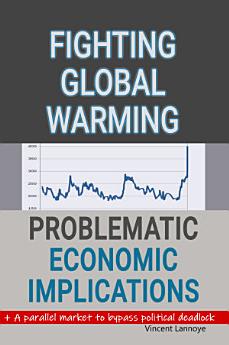Fighting Global Warming: Problematic Economic Implications
About this ebook
The shift to a low-carbon economy is progressing slowly—even in countries committed to addressing climate change. This is not due to a lack of awareness, but to the high cost of cutting emissions. Policymakers, in particular, face a dilemma: how to advance climate goals without placing excessive financial strain on lower- and middle-income families or risking job losses. Achieving net-zero emissions is not just a technical challenge—it is fundamentally an economic one.
Addressing this issue requires a clear, well-reasoned approach—beginning with the rejection of unrealistic regulatory fixes. From there, the priority should be to build a strong economic foundation that enables practical and effective solutions.
Still waiting for technological breakthroughs to accelerate the transition?
Fossil-fuel dependence has dragged on, but there is hope that emerging technologies will provide cheaper clean alternatives. The crucial question is whether these innovations will materialize quickly enough to mitigate global warming.
~~~~~
Given that progress hinges on uncertain technological breakthroughs, the final section references The Green-Market System, which outlines a monetary strategy designed to encourage consumers and businesses to transition to a carbon-free economy.
Ratings and reviews
- Flag inappropriate
- Show review history
- Flag inappropriate
About the author
Vincent Lannoye was born in the US and grew up in Belgium in an industrial family, which sparked his curiosity to analyze and critique economics and politics. An engineer with an MBA from Edhec France, today he works in high-tech in Silicon Valley.
His past, his passion for politics, economics, and the challenge of limiting global warming, all have inspired him to write about economics.






